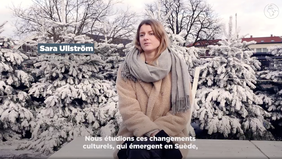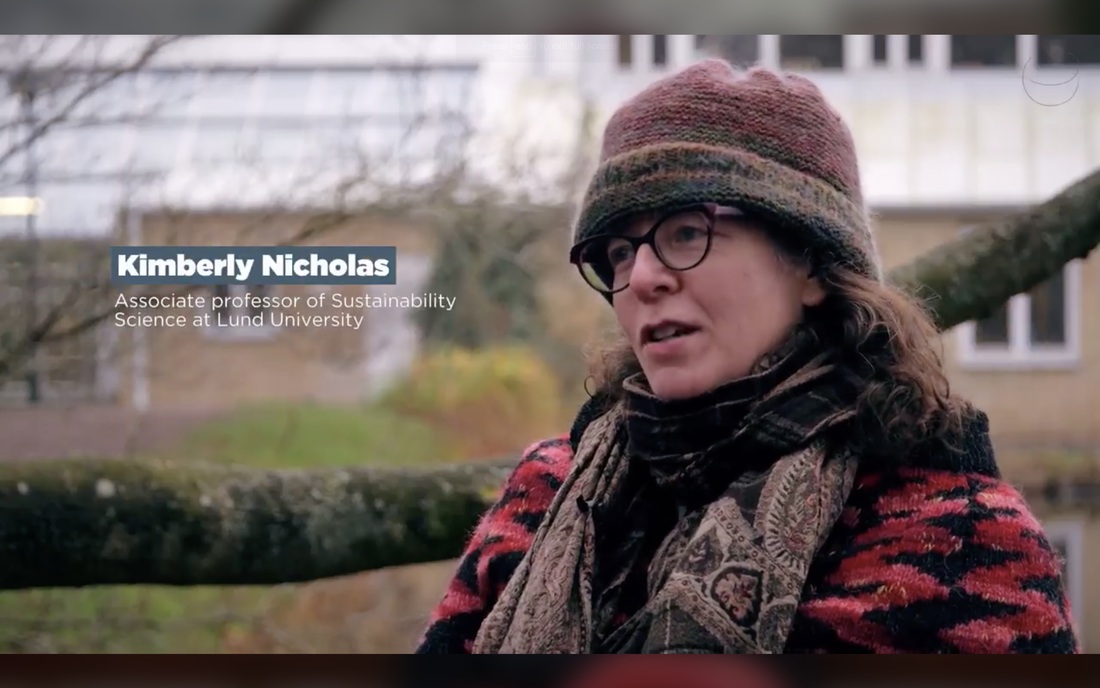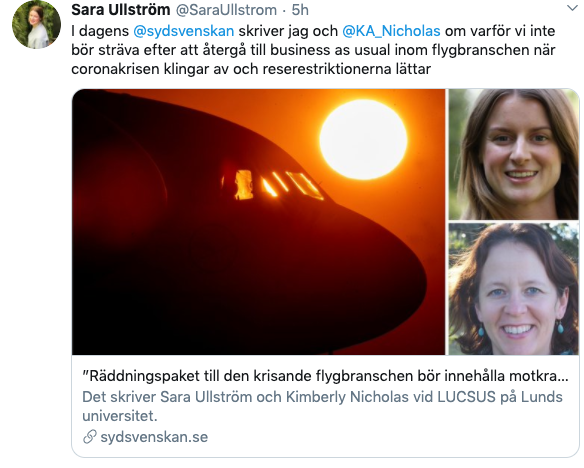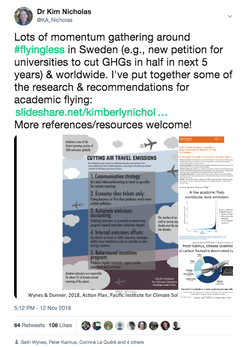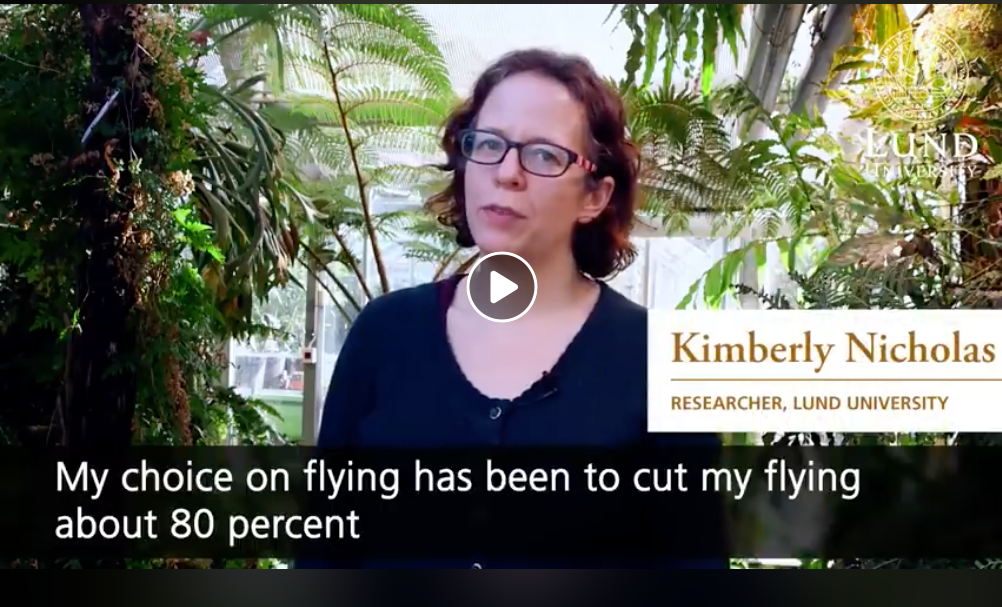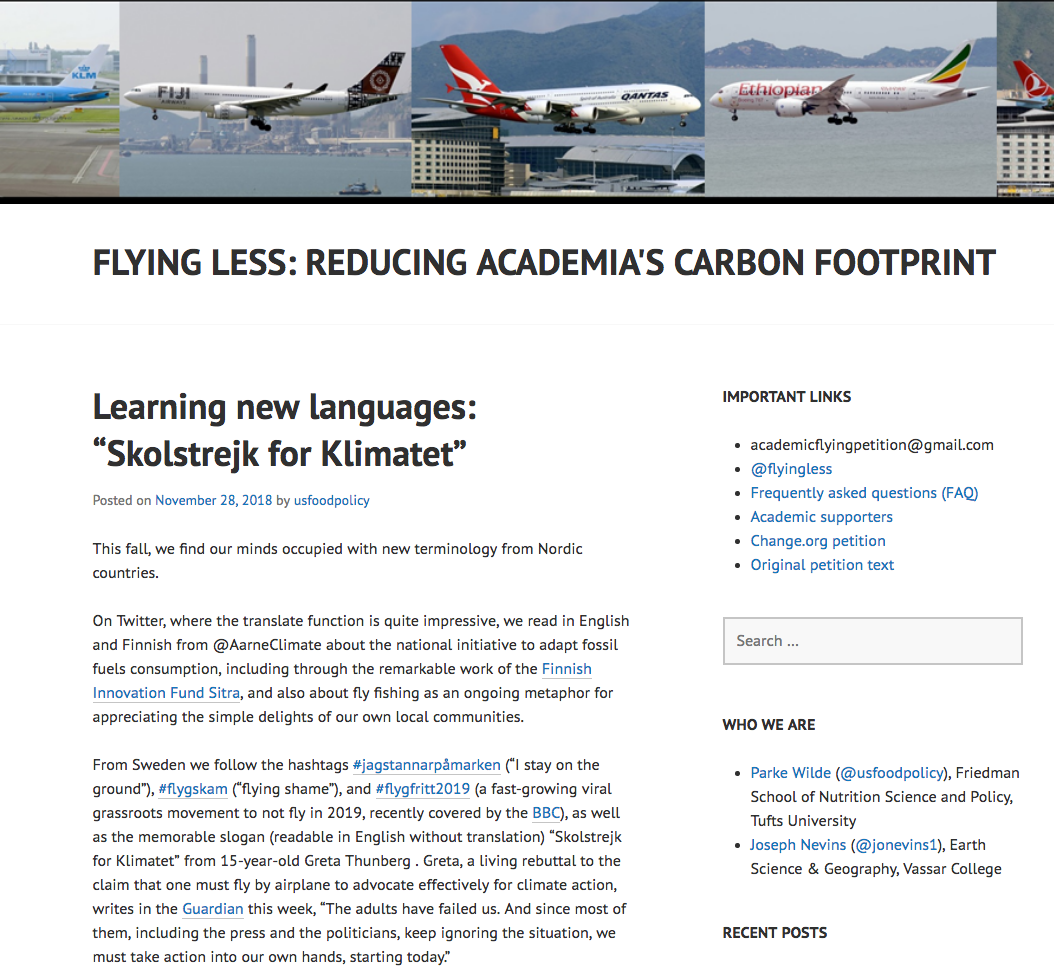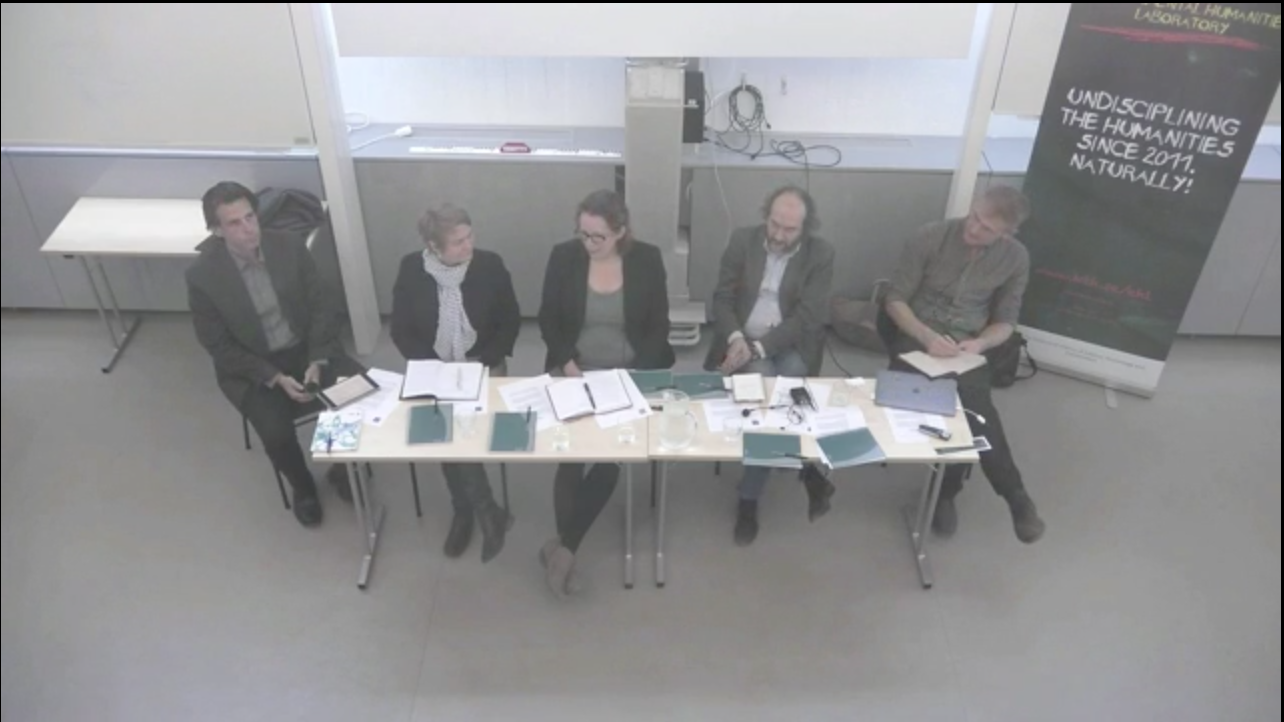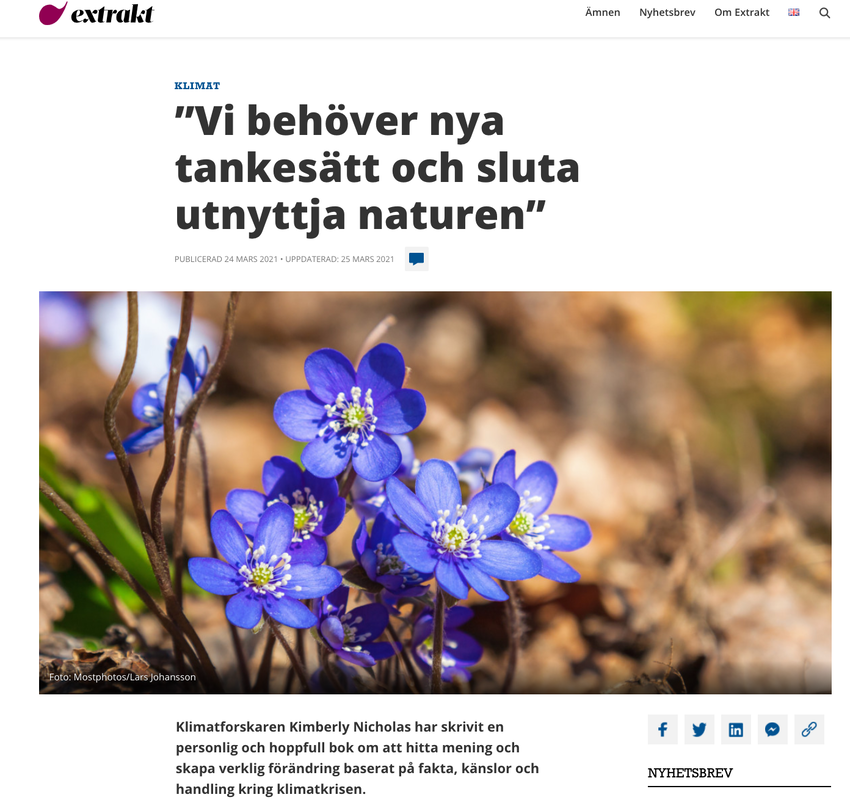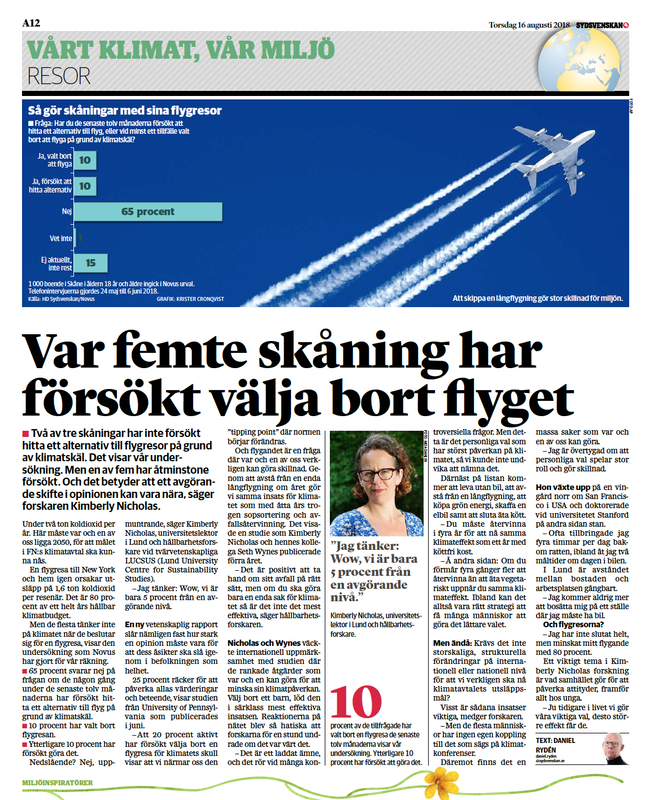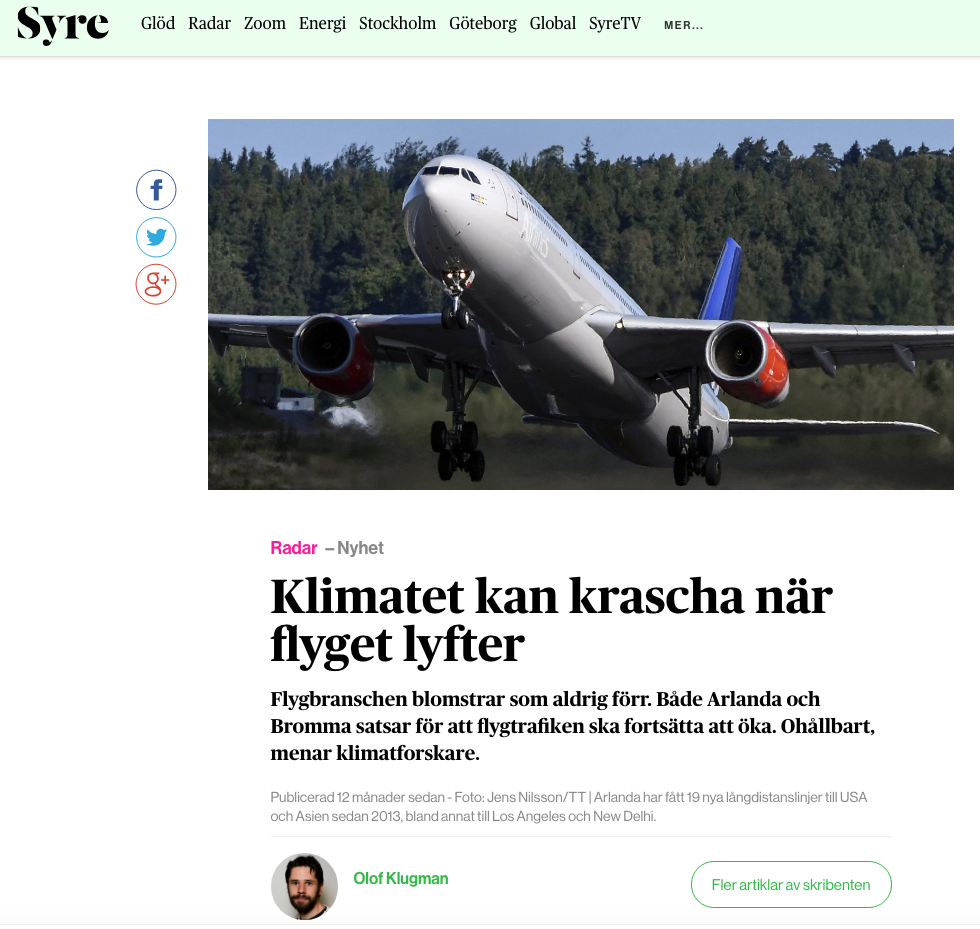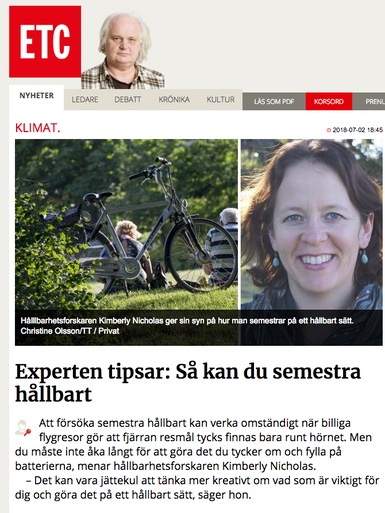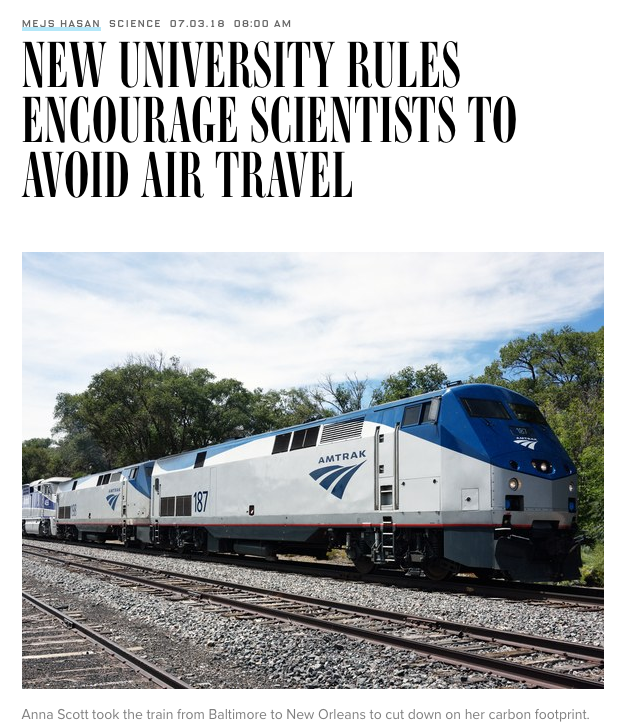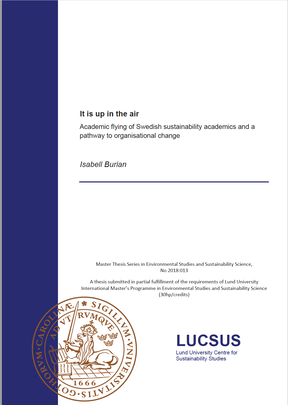The Takeoff of Staying on the Ground: Changing personal and political narratives of aviation, climate, and the good life in Sweden
"It's a mistake to equate traveling with flying, and it's a mistake to think it's desirable to get back to an increase in flying, because that is just unsafe for the climate." My participation in an hour-long debate with aviation industry reps on BBC.
VideosSara and I were interviewed about staying on the ground by three young French filmmakers for their documentary project WAY-We Are Young.
New Op-Ed: Flight industry needs absolute emissions reductionsSara Ullström and Kimberly Nicholas wrote an op-ed on 23 April 2020 for Sydsvenskan on how flying should look after the coronavirus pandemic (in Swedish).
Conference participation"From aspirational luxury to hypermobility to ‘staying on the ground': Tracing recent narratives of holiday air travel in Sweden." (6-8 May 2020). Sara Ullström, Johannes Stripple, and Kimberly Nicholas. Virtual presentation at "Towards low-carbon lifestyles: ICTA-UAB International Virtual Conference." Full presentation here.
“Aspirational luxury, hypermobility, and staying on the ground: Tracing narratives of holiday air travel in Sweden, 1950-2020.” (June 10-12, 2020). Sara Ullström, Johannes Stripple, and Kimberly Nicholas. Presentation in “Flight Free Vacation Practices” session at SCORAI (4th Annual Sustainable Consumption Research & Action Initiative Conference, “Sustainable Consumption Sustainable Consumption & Social Justice in an Urbanizing World.) Boston, USA + virtual hub Stockholm, Sweden. Past talks: "The Takeoff of Staying on the Ground" (Tue, Nov 5, 2019). Kimberly Nicholas. Workshop for Swedish researchers on reducing flying. Humanities Lab. Stockholm, Sweden. "Tracing changes in the holiday travel discourse: from package tours to low-cost aviation to staying on the ground." (Tue, Nov 5, 2019). Sara Ullström. Workshop for Swedish researchers on reducing flying. Humanities Lab. Stockholm, Sweden. Scientific AbstractContinuation of business as usual trends for aviation are incompatible with meeting national and international commitments to avoid dangerous climate change. Thus, there is an urgent need to better understand options to reduce greenhouse gas emissions from aviation, including through reducing demand. There is a recent and growing cultural shift in Sweden to avoid flying, by leaders from diverse backgrounds including journalists, politicians, celebrities, and parents, as well as a national flight tax begun in 2018. This research will seize this important moment to document, analyze and evaluate the evolution of the conversations about aviation, climate, and the good life happening in traditional and social media, and their implications for policy and daily life. We will show how these narratives evolved over time, culminating in the ultimately successful adoption of the national flight tax; conduct interviews to understand the arguments, motivations and strategies of key change agents who are leading a rapidly growing trend to voluntarily avoid flying; and connect these political and personal narratives to explore their potential synergies and tradeoffs. Understanding the reasons behind the successful rise of staying on the ground up the social and political agenda in Sweden will both illuminate the often overlooked role of cultural change in meeting climate goals, and make predictions about the potential for replicating these impacts elsewhere.
Popular science descriptionAvoiding dangerous climate change will require nearly eliminating climate pollution from greenhouse gas emissions in the next few decades. Sweden has enacted the Climate Law, which promises to emit no more greenhouse gases than are removed from the atmosphere by 2045. Currently, although aviation is a globally small source of climate pollution, for most individuals it is the single most carbon-intensive activity (we have shown that one roundtrip flight can cause as much climate pollution as two years of eating meat, or one year of driving a car) (Wynes & Nicholas, 2017). Therefore, reducing flying has become an important focus for researchers calling for emissions reductions to meet Swedish and international climate targets, and as a potential catalyst for broader social and lifestyle changes compatible with a safe climate.
So far, the research focus has primarily been on analyzing the flying behavior of experts, reasoning that they are the ones who best know the risks of climate change and should be most likely to be willing to change their behavior as a result. However, there has been very little attention paid to the flying behavior of ordinary citizens, particularly in their personal lives (for leisure rather than work-related travel), and what might motivate change in either individual behavior or broader social norms that currently support unsustainable flying behavior. Sweden in 2018 presents an important and novel case of a still developing but potentially transformative political and cultural shift beginning to form around the recognition of the threat that frequent private aviation poses to the climate. This research will seize this important moment to document, analyze and evaluate the evolution of the conversations about aviation, climate, and the good life happening in traditional and social media as they have unfolded since 2015 and as they continue to evolve to 2020, and their implications for policy and daily life. First, we will analyze articles from 2015-2020 in major Swedish newspapers, and posts on social media, to identify how aviation is represented - for example, as glamorous, economically important, and/or a disaster for the climate - and what arguments are used to support these claims. We will show how these narratives evolved over time, culminating in the ultimately successful adoption of the national flight tax. Second, we will focus on Swedish change agents who have publicly declared their commitment to avoid flying in their personal lives, with whom we will conduct interviews to understand their goals, motivations and strategies. Third, we will put the political and personal narratives in conversation with each other, to examine how these may reinforce or interfere with each other. From this we will draw broader implications about the changing role of aviation in Swedish visions of the good life under climate change, and how this seed of a lower-carbon lifestyle might grow and thrive elsewhere. |
Resources on FlyinglessMy story on flying less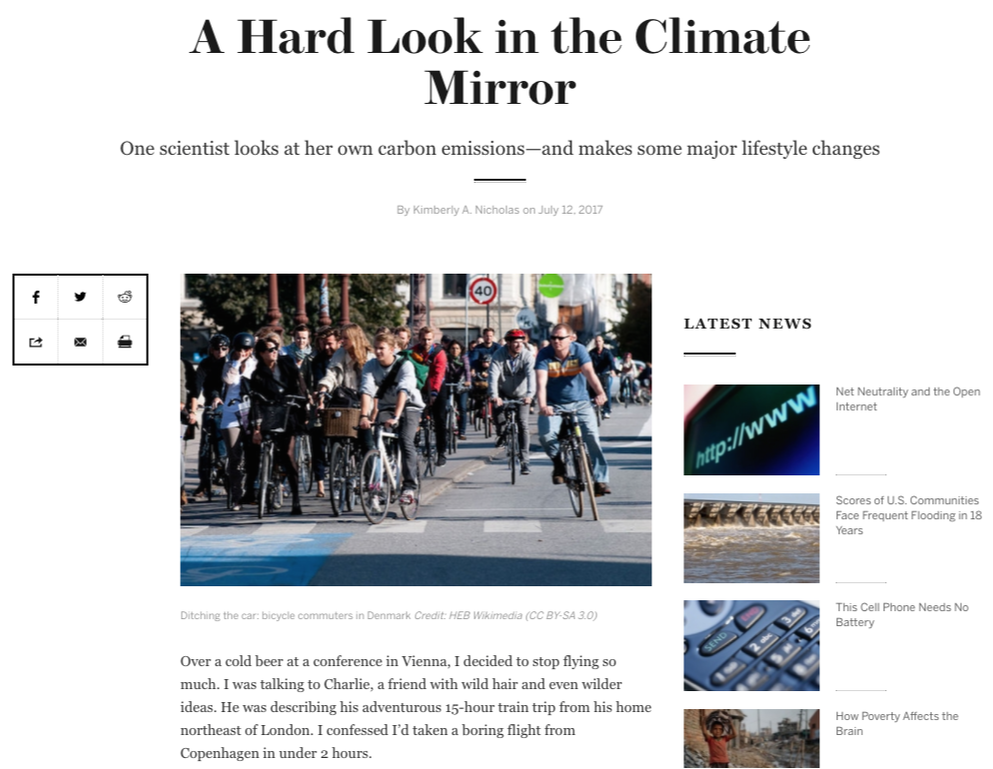 How I've made climate action personal: Op-ed for Scientific American How I've made climate action personal: Op-ed for Scientific American
|
Press on flying & climate
Up-to-date contributions in the press are found here, including recent articles in the New York Times and BBC on reducing flying.

